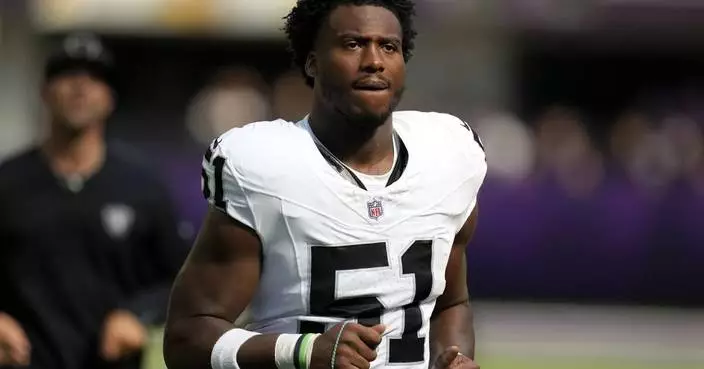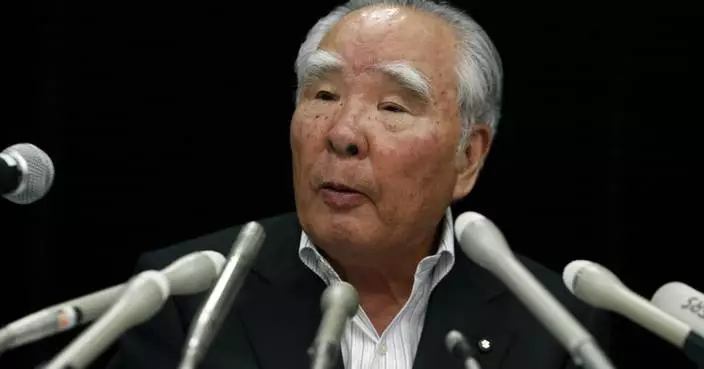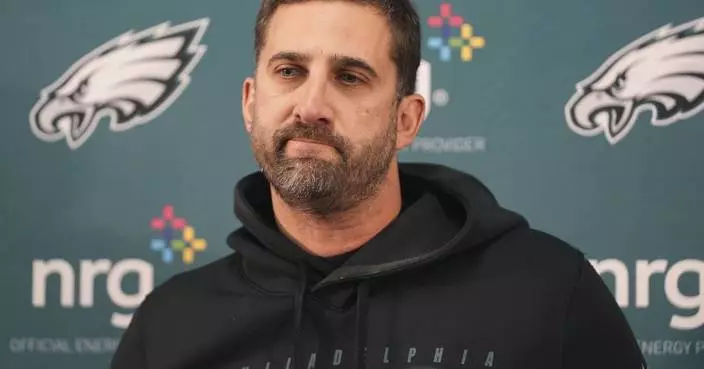CHICAGO (AP) — The Seattle Seahawks placed running back Kenneth Walker III on injured reserve prior to Thursday night's game at Chicago because of an ankle injury.
Walker got hurt during Sunday's 27-24 loss against Minnesota. He left that game after sitting out the previous two because of a calf problem. He also missed two weeks in September with an oblique issue.
Walker has run for 573 yards and seven touchdowns on 153 carries. A second-round draft pick by Seattle in 2022, he has 2,528 yards rushing and 24 TDs in his career.
The Seahawks' inactive list for the matchup with the Bears included quarterback Jaren Hall, cornerback Nehemiah Pritchett, tight end Brady Russell, linebacker Patrick O’Connell, offensive tackle Michael Jerrell and wide receiver Cody White.
Bears offensive lineman Teven Jenkins was sidelined by a calf injury, but defensive lineman Gervon Dexter was active. Dexter has been dealing with a knee injury.
Chicago's inactive list included running back Travis Homer, defensive backs Elijah Hicks and Tarvarius Moore, linebacker Noah Sewell and defensive lineman Zacch Pickens.
Walker could, in theory, return if the Seahawks win two playoff games, though their postseason hopes were slim entering the trip to Chicago. Seattle (8-7) trailed the NFC West-leading Los Angeles Rams (9-6) by one game with two to play.
The Seahawks' best path to the postseason was to win the final two regular-season games and have Los Angeles lose to Arizona on Saturday. Seattle visits the Rams to close the regular season.
AP NFL: https://apnews.com/hub/NFL
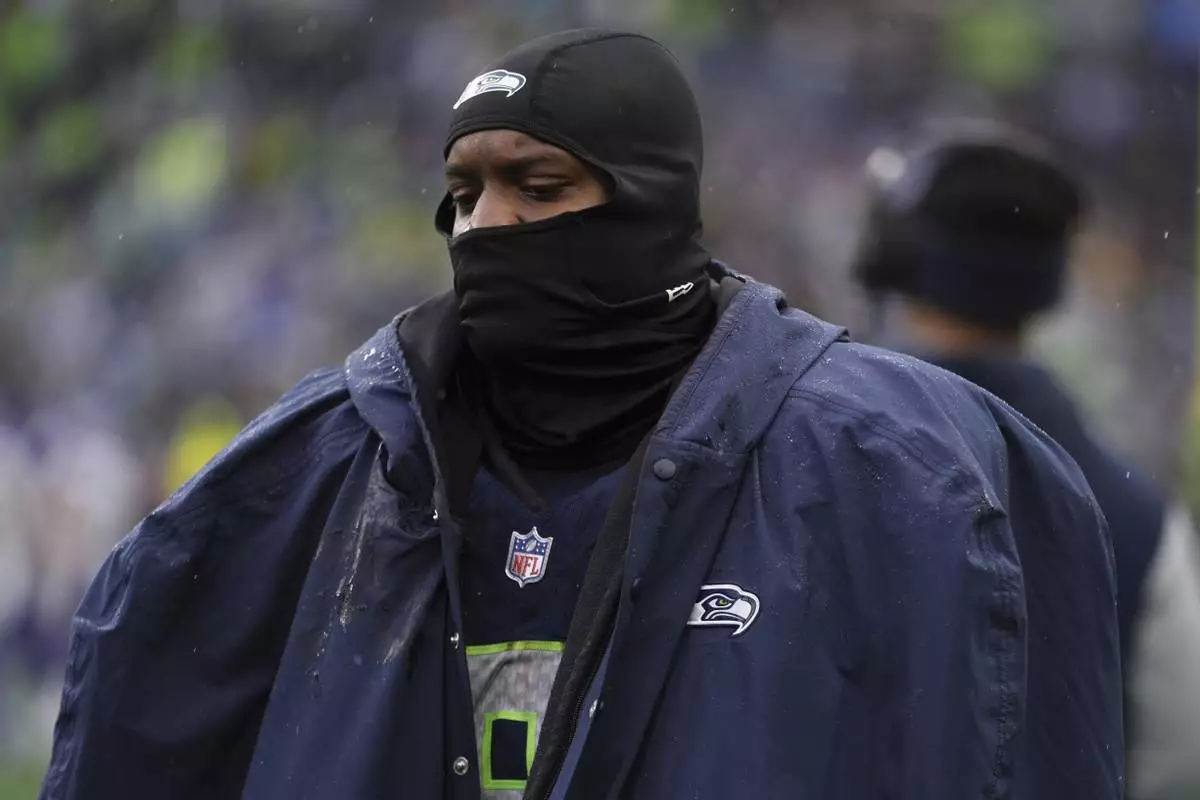
Seattle Seahawks running back Kenneth Walker III (9) walks down the sideline during the first half of an NFL football game against the Minnesota Vikings, Sunday, Dec. 22, 2024, in Seattle. (AP Photo/Lindsey Wasson)

Seattle Seahawks running back Kenneth Walker III (9) runs with the football as Minnesota Vikings safety Camryn Bynum (24) tries to tackle during the second half of an NFL football game, Sunday, Dec. 22, 2024, in Seattle. (AP Photo/Lindsey Wasson)
WASHINGTON (AP) — Most Americans believe health insurance profits and coverage denials share responsibility for the killing of UnitedHealthcare's CEO — although not as much as the person who pulled the trigger, according to a new poll.
In the survey from NORC at the University of Chicago, about 8 in 10 U.S. adults said the person who committed the killing has “a great deal” or “a moderate amount” of responsibility for the Dec. 4 shooting of Brian Thompson.
Despite that, some have cast Luigi Mangione, the 26-year-old suspect charged with Thompson’s murder, as a heroic figure in the aftermath of his arrest, which gave rise to an outpouring of grievances about insurance companies. Police say the words “delay,” “deny” and “depose” were scrawled on the ammunition investigators found at the scene, echoing a phrase commonly used to describe insurer tactics to avoid paying claims.
UnitedHealthcare has said Mangione was not a client.
About 7 in 10 adults say that denials for health care coverage by insurance companies, or the profits made by health insurance companies, also bear at least “a moderate amount” of responsibility for Thompson’s death. Younger Americans are particularly likely to see the murder as the result of a confluence of forces rather than just one person's action.
The poll finds hat the story of the slaying is being followed widely. About 7 in 10 said they had heard or read “a lot” or “some” about Thompson’s death.
Multiple factors were seen as responsible. About half in the poll believe that at least “a moderate amount” of blame is rooted in wealth or income inequality, although they did not think other factors like political divisions in the U.S. held the same level of responsibility.
Patients and doctors often complain about coverage denials and other complications interfering with care, especially for serious illnesses like cancer and amyotrophic lateral sclerosis, or ALS. Insurance industry critics frequently point to company profits in questioning whether the interests of patients are their top focus.
UnitedHealthcare made more than $16 billion in profit last year, before interest and taxes, on $281 billion in revenue. Insurers frequently note that most of the revenue they bring in goes back out the door to pay for care. UnitedHealthcare said this month that it pays about 90% of medical claims when they are submitted. The insurer has not provided details about how many claims that involves.
Americans under 30 are especially likely to think a mix of factors is to blame for Thompson’s death. They say that insurance company denials and profits are about as responsible as Thompson’s killer for his death. About 7 in 10 U.S. adults between 18 and 29 say “a great deal” or “a moderate amount” of responsibility falls on profits made by health insurance companies, denials for health care coverage by health insurance companies or the person who committed the killing.
Young people are also the least likely age group to say “a great deal” of responsibility falls on the person who committed the killing. Only about 4 in 10 say that, compared with about 6 in 10 between 30 and 59. Roughly 8 in 10 adults over 60 say that person deserves “a great deal” of responsibility.
About two-thirds of young people place at least a moderate level of blame on wealth or income inequality, in general.
People under 30 are more likely to place blame on the media, with 54% saying that compared with about one-third of older adults.
Frustrations with health insurers, coverage and the complicated U.S. health care system have been simmering for years among patients.
About 3 in 10 Americans say they have had a problem getting coverage from their health insurer in the last year, whether those involved problems finding a suitable provider in-network, a claim getting denied or issues getting prior authorization or insurer approval before care happens. These struggles are more prevalent among Americans under 60.
Insurers say prior authorizations help eliminate waste in the system and let people know whether care will be covered before it is delivered.
Roughly 3 in 10 in the poll say immediate family or close friends have experienced problems getting coverage from their health insurer in the last year. Americans under 30 are among the most likely to say they don’t have health insurance.
Most Americans get health coverage through their job or by purchasing individual policies. Separate, government-funded programs provide coverage for people with low incomes or those who are age 65 and over or have severe illnesses or disabilities.
—-
The poll of 1,001 adults was conducted Dec. 12-16, 2024, using a sample drawn from NORC’s probability-based AmeriSpeak Panel, which is designed to be representative of the U.S. population. The margin of sampling error for adults overall is plus or minus 4.2 percentage points.
Associated Press writer Tom Murphy reported from Indianapolis.
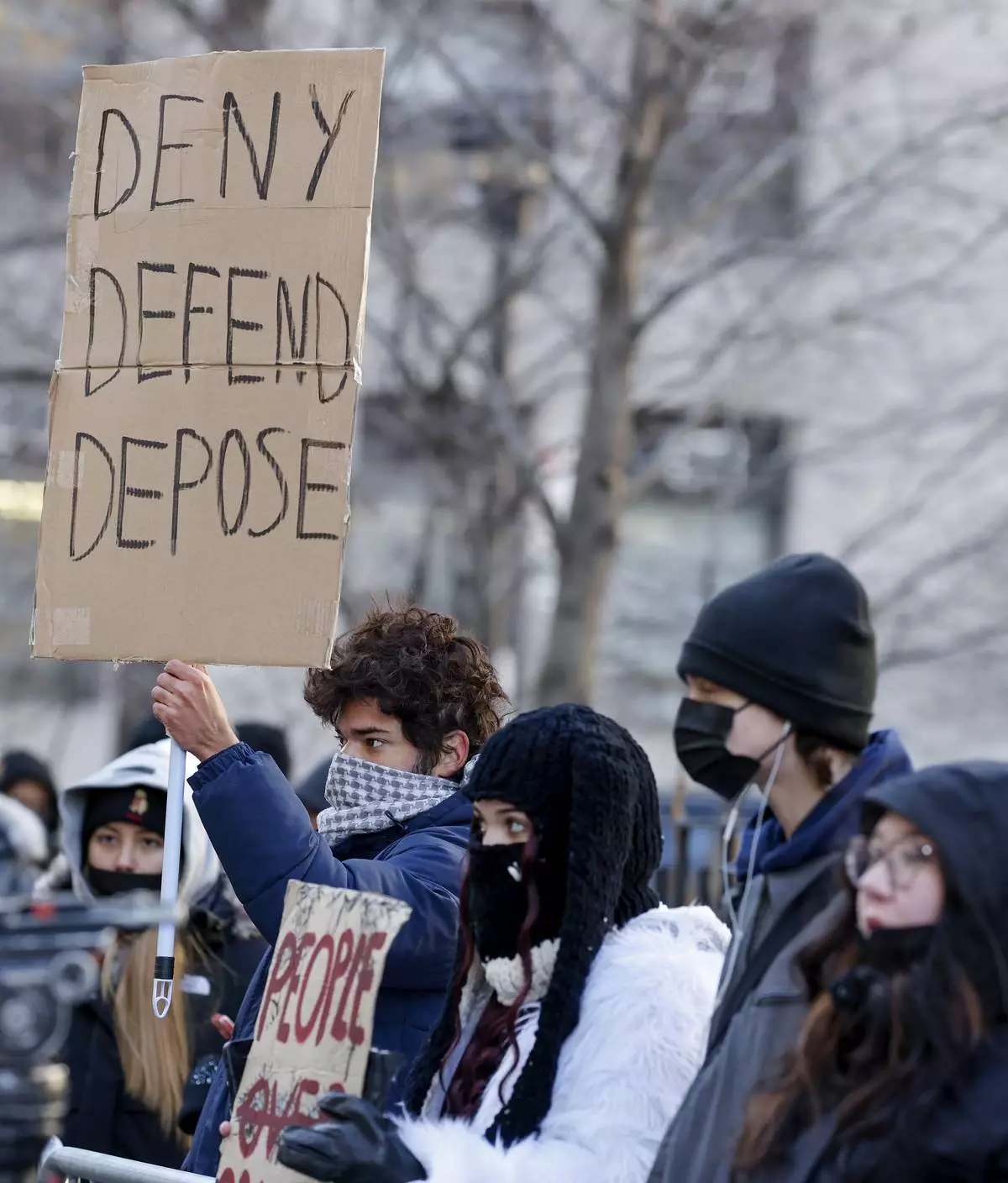
Demonstrators hold up signs while waiting for the arrival of Luigi Mangione for his arraignment in Manhattan Criminal Court, Monday, Dec. 23, 2024, in New York. (AP Photo/Stefan Jeremiah)
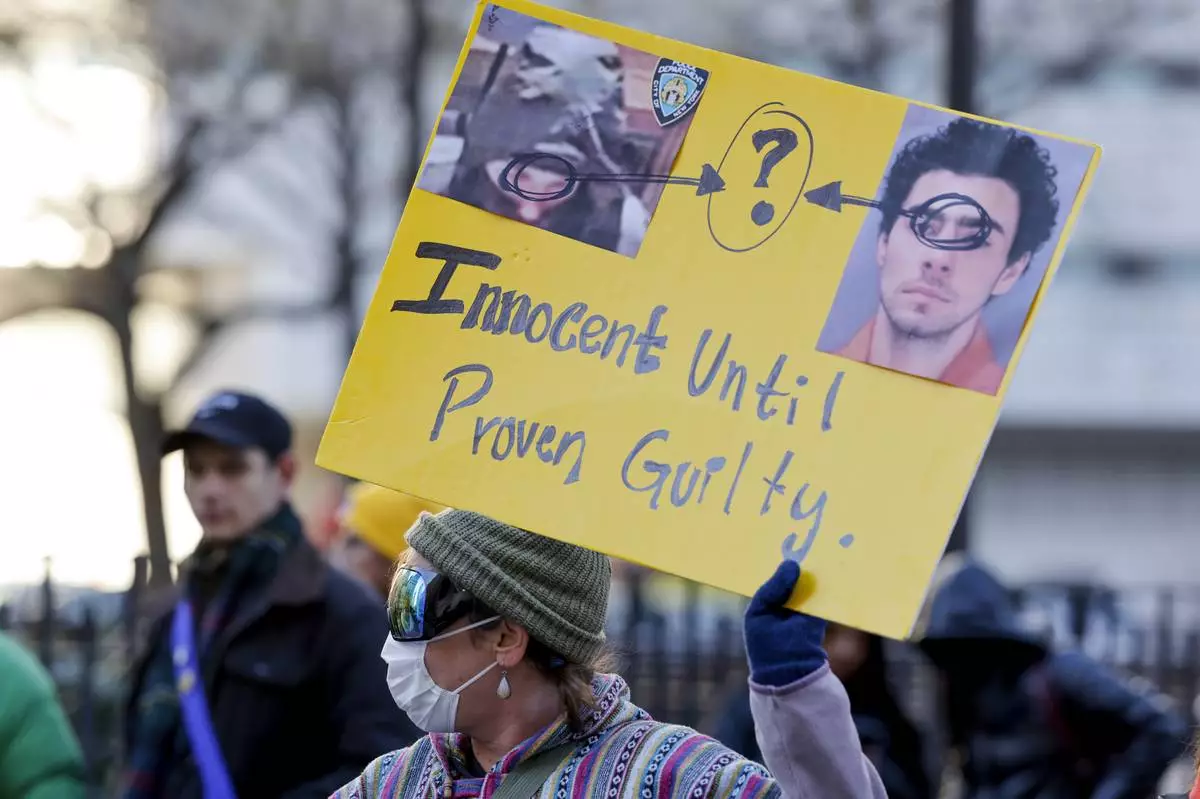
A demonstrator holds up a sign while waiting for the arrival of Luigi Mangione for his arraignment at Manhattan Criminal Court, Monday, Dec. 23, 2024, in New York. (AP Photo/Stefan Jeremiah)










